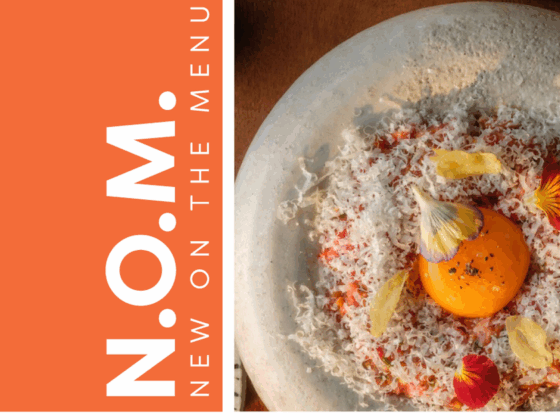I recently had the pleasure of sitting down with Araceli Budia, Senior Manager of Global Digital & Guest Experience at Palladium Hotel Group. Our conversation peeled back the layers to reveal what it truly means to create memorable experiences for guests in today’s hospitality world. Palladium is a dynamic, family-run company in expansion mode, having recently entered the UAE market and boasting over 40 hotels across eight destinations. This allows them to move quickly, fostering an environment that encourages innovation, disruptive ideas, and a unique collaborative energy.
Takeaways
Guest Experience is Integrated: It’s not separate; it’s deeply woven into all hotel operations. Every staff member impacts guest satisfaction directly.
Actionable Feedback Matters: Go beyond scores. Use semantic analysis to find “why” behind data and create real action plans.
Personalized Guest Journeys: Craft specific journey maps for each hotel. Co-creation with local teams ensures practical implementation.
Value Your Team: Treat staff as internal customers. Their motivation and culture directly drive external guest loyalty and returns.
Smart Technology Use: Tech supports, not replaces, human empathy. Use it to save time and focus on vital human connections.
Turning guests into fans
Our conversation highlighted Palladium Hotel Group’s unique approach to hospitality. The company, despite its growth, maintains a family-run ethos that fosters innovation and a collaborative spirit. This environment encourages quick adaptation and the implementation of disruptive ideas. A central topic discussed was the mission to transform every guest into a loyal fan. This objective permeates all levels of the organization. From the back office to the front lines, every decision and action is viewed through the lens of the guest’s perspective. It emphasizes that grand gestures are not always necessary. Sometimes, simply listening, pausing, and understanding a guest’s needs can make a significant difference.
Operations and guest experience
A crucial point emphasized was the intrinsic link between operations and guest experience. These two aspects are not separate entities but are deeply intertwined. Improving guest experience is not the sole responsibility of a single department. Instead, it is an integral part of the hotel’s overarching mission. Every staff member must understand that winning over the guest is the ultimate goal. This includes recognizing the “quiet guest”, the one who does not complain but also does not return. Identifying signals before guests leave is key to proactive management.
“Our mission is clear: turn guests into fans. Whether you’re in the back or front office, we look at everything from the guest’s perspective.” Araceli Budia, Global Digital & Guest Experience Sr. Manager, Palladium Hotel Group
The art and science of guest feedback
We discussed at length the critical role of guest feedback. Obtaining feedback is viewed as a valuable gift that hotels must learn to receive and interpret correctly. This involves utilizing both qualitative and quantitative data. The goal is to provide actionable insights for hotel teams. Crafting effective surveys is a skill in itself. It requires experience and a clear objective. Semantic analysis was highlighted as a powerful tool. It helps to understand the “why” behind data trends. This goes beyond simply observing whether an indicator rises or falls. Often, the most impactful ideas stem from small, insightful actions.
Surveys, like the guest experience itself, must evolve. For example, if online check-in is implemented, its effectiveness should be measured. Analyzing guest behavior during surveys, such as where they drop off or pause, provides valuable insights into their experiences. This allows for fine-tuning questions and respecting the guest’s time. The fact that some guests dedicate significant time to surveys speaks volumes about their loyalty and commitment. This valuable data must be useful, representative, and support sound decision-making.


Implementing insights
Translating theoretical knowledge into daily operations presents a significant challenge. Araceli highlighted a project where the team paused routine activities for two days. This allowed them to deeply analyze guest motivations for choosing a specific destination. Personalized guest journey maps were created for each hotel. This process involved co-creation with the on-site teams. The aim was to bring broad concepts down to a very tactical level.
This approach ensures that insights are specific to each local reality, rather than just broad visions. They are specific and tailored to each property. Working directly with individual hotel teams, within their brand guidelines, allows for detailed sketching of the guest journey. This “artisanal, precise job” involves analyzing moments with the most impact. It also considers what guests say and how improvements can be made. Semantic data plays a crucial role here. While red flags often grab attention, reinforcing positive aspects is equally important. Understanding what is working well allows hotels to amplify those successes.
Beyond the external guest
The conversation also introduced the concept of the “360° customer.” This encompasses not only the external guest but also the internal customer, the hotel team. Understanding why team members choose to work and stay at the hotel is vital. In hospitality, attracting a guest for a single visit is often easier than ensuring their return. This long-term retention is closely tied to internal culture. It involves motivation and recognition of good work.
The mission is to provide teams with easy access to useful data. The goal is not to overwhelm them with dashboards. Instead, it is about helping them identify which data points require action. This clarity significantly impacts daily operations. In a world with countless tools, prioritizing information is key. The challenge lies in distinguishing between what is urgent and what is important. Utilizing tools that genuinely assist, such as automatic alerts and predictive analysis, is crucial. However, the ultimate key is to filter out the noise. Focus must remain on actionable data.
“Technology should be there to support us. But the value comes from how we use it, and that’s where we look for partners to help us save time and focus on what really matters.” Araceli Budia, Global Digital & Guest Experience Sr. Manager, Palladium Hotel Group
The indispensable human touch
A critical point reiterated throughout the discussion was the enduring importance of the human touch. Technology is a necessary support system. However, it cannot replace human empathy. A humorous anecdote Araceli mentioned about a robot-staffed hotel highlighted this perfectly. Despite advanced technology, basic human tasks proved challenging for the robots. This underscored the fact that while technology enhances efficiency, the true value in hospitality comes from human connection. Technology should empower staff. It should save them time. This allows them to focus on what truly matters: providing exceptional human-centric service.
Conclusion
The conversation provided a compelling overview of modern hotel guest experience strategies. It emphasized a proactive, data-driven yet deeply human approach to hospitality. Hotels that successfully integrate operations and guest experience, leverage intelligent feedback, and empower their teams are poised for lasting success. This podcast episode serves as a valuable resource for anyone seeking to enhance their understanding of guest engagement. It encourages a closer look at the intersection of technology and the irreplaceable human touch in creating truly memorable stays. We encourage you to watch the full episode for a complete understanding of these vital topics.
Watch the podcast here (in Spanish).
[embedded content]









